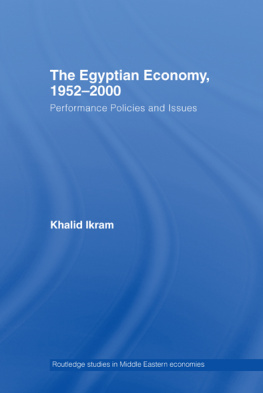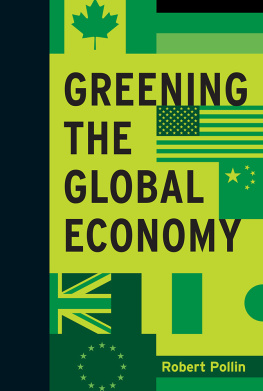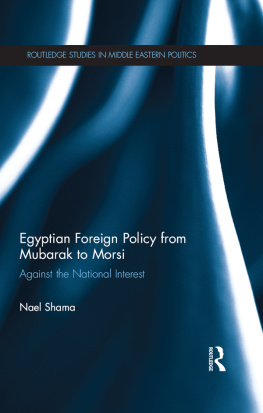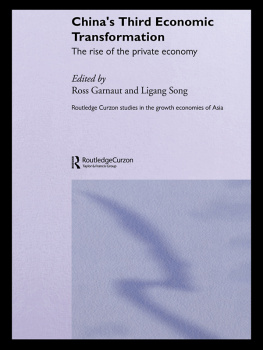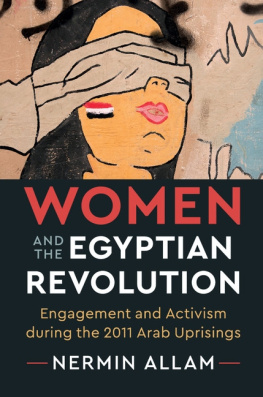ROUTLEDGE LIBRARY EDITIONS:
EGYPT
EGYPT'S ECONOMIC POTENTIAL
EGYPT'S ECONOMIC POTENTIAL
Edited by
ROBERTO ALIBONI, ALI HILLAL DESSOUKI,
SAAD EDDIN IBRAHIM, GIACOMO LUCIANO AND
PIERCARLO PADOAN
Volume 7
First published in 1984
This edition first published in 2013
by Routledge
2 Park Square, Milton Park, Abingdon, Oxon, OX14 4RN
Simultaneously published in the USA and Canada
by Routledge
711 Third Avenue, New York, NY 10017
Routledge is an imprint of the Taylor & Francis Group, an informa business
1984 Istituto Affari Internazionali
All rights reserved. No part of this book may be reprinted or reproduced or utilised in any form or by any electronic, mechanical, or other means, now known or hereafter invented, including photocopying and recording, or in any information storage or retrieval system, without permission in writing from the publishers.
Trademark notice: Product or corporate names may be trademarks or registered trademarks, and are used only for identification and explanation without intent to infringe.
British Library Cataloguing in Publication Data
A catalogue record for this book is available from the British Library
ISBN: 978-0-415-63747-3 (Set)
eISBN: 978-0-203-07914-0 (Set)
ISBN: 978-0-415-81120-0 (Volume 7)
eISBN: 978-0-203-06941-7 (Volume 7)
Publisher's Note
The publisher has gone to great lengths to ensure the quality of this reprint but points out that some imperfections in the original copies may be apparent.
Disclaimer
The publisher has made every effort to trace copyright holders and would welcome correspondence from those they have been unable to trace.
EGYPTS
ECONOMIC
POTENTIAL
EDITED BY:
Roberto Aliboni
Ali Hillal Dessouki
Saad Eddin Ibrahim
Giacomo Luciano
Piercarlo Padoan
1984 Istituto Affari Internazionali
Croom Helm Ltd, Provident House, Burrel Row,
Beckenham, Kent BR3 1AT
Croom Helm Australia Pty Ltd, First Floor, 139 King Street,
Sydney, NSW 2001, Australia
Croom Helm, 51 Washington Street,
Dover, New Hampshire, 03820 USA
British Library Cataloguing in Publication Data
Egypts economic potential.
1. Egypt-Economic conditions 1952
I. Aliboni, Roberto
330.962'055 HC830
ISBN 0-7099-1319-2
Printed and bound in Great Britain
by Billing & Sons Limited, Worcester.
CONTENTS
TABLES
FIGURES
ABBREVIATIONS
ARE | Arab Republic of Egypt |
AWAC | Airborne Warning and Control System |
CAPMAS | Central Agency for Public Mobilisation and Statistics |
EGPG | Egyptian General Petroleum Company |
ESU | Economic Studies Unit |
GDP | Gross Domestic Product |
IBRD | International Bank for Reconstruction and Development |
IDA | International Development Association |
IEOC | International Egyptian Oil Company (a subsidiary of Italy's AGIP) |
IISS | International Institute of Strategic Studies |
ILO | International Labour Organisation |
IMF | International Monetary Fund |
LDCs | Less Developed Countries |
MEES | Middle East Economic Survey |
OAPEC | Organisation of Arab Petroleum Exporting Countries |
ODEP | Open Door Economic Policy |
OECD | Organisation of Economic Co-operation and Development |
OPEC | Organisation of Petroleum Exporting Countries |
PIW | Petroleum Intelligence Weekly |
UNECWA | United Nations Economic Commission for Western Asia |
USAID | United States Agency for International Development |
NOTE ON AUTHORS
Roberto Aliboni is the Director of IAI. An expert on international relations in the Mediterranean, North Africa and the Middle East, he edited a volume on Arab Industrial Integration (Croom Helm, 1979).
Ali E. Hillal Dessouki is Professor of Political Science at Cairo University. He was a visiting professor at UCLA and Princeton University. His publications include Islam and Power (Croom Helm, 1982) Islamic Resurgence in the Arab World and Foreign Policies of the Arab States.
Saad Eddin Ibrahim is Professor of Sociology at the American University in Cairo. He was a visiting professor at the AUB and UCLA. Wrote extensively in Arabic and English on Egyptian and Arab society, and is the author of The New Arab Social Order (Westview Croom Helm, 1982).
Giacomo Luciani is the Director of Studies of IAI. An economist by training, has written extensively on oil, the multinational enterprises and the Arab and Mediterranean economies. Is the author of International Oil Companies and Arab Countries (Croom Helm, 1984) and editor of The Mediterranean Region (Croom Helm, 1984).
Piercarlo Padoan is Associate Professor of Economics at the University of Rome. He is the author of contributions to Qualitative Analysis and Econometric Estimation of Continuous Time Dynamic Models (North Holland, 1980), Non-Linear Models of Fluctuating Growth (Springer Verlag, 1984) and of other articles on major international journals.
ACKNOWLEDGEMENTS:
This book is the result of a research project undertaken by the Istituto Affari Internazionali with funds kindly provided by the Istituto Bancario S. Paolo of Turin. The IA1 wishes to express its gratitude for this support to Prof. Luigi Coccioli, who was at the time the President of S. Paolo, and has since moved to become President of the Banco di Napoli. We also wish to thank Dr Ruggero Fossati, head of the International Division, and Dr Alfonso lozzo, head of the Research Department of the Istituto Bancario S. Paolo.
The five authors team met in Cairo in November 1982 and extensively discussed preliminary drafts of the various chapters. During their stay in Cairo, the Italian members of the team also conducted numerous interviews and discussions on specific aspects with the following persons: Abdel Moneim Abu Saad, Ahmed Youssef Ahmed, Peter W. Amato, Galal Amin, Hamied Ansari, Nabya Asfahani, Ahmed Baha Eldine, John Bentley, Boutros Boutros-Ghali, Mostafa K. El Ayouty, Mahmoud Abdel Fadil, John Gerhart, Mughtar Halouda, Heba Handoussa, Nabil A. Hilmy, Fawzi Ibrashi, Hafez Ismail, Walid Kazziha, Mustapha Khalil, Moustafa Mahir Amin, Osman Mohammed Osman, Ismail Sabri Abdallah, Ibrahim Sakr, El Sayed Yassin. While the help and cooperation of all the persons listed above is gratefully acknowledged, they cannot in any way be held responsible for opinions and judgements expressed in this book.


